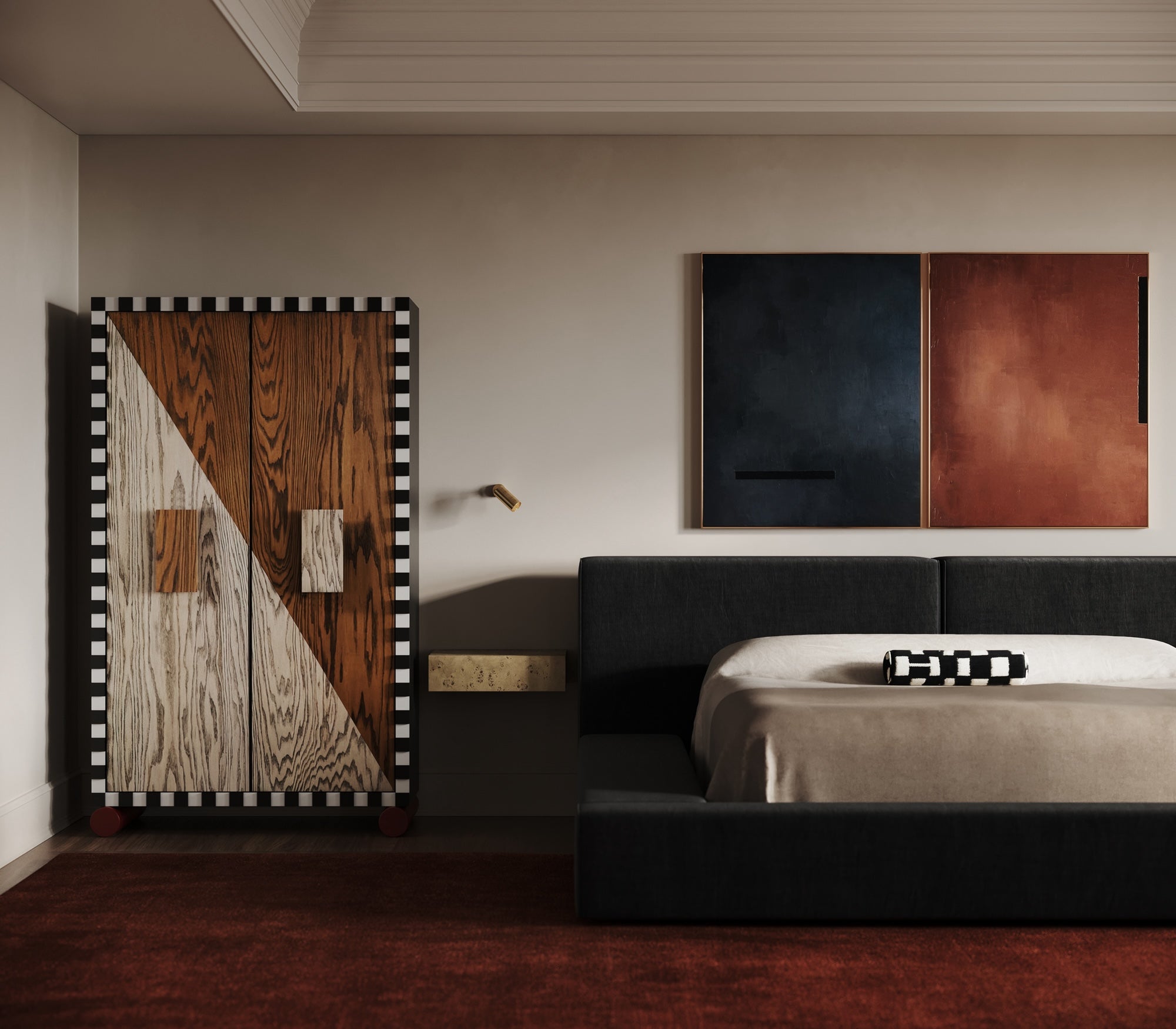Abner Henry is changing the way we view Amish furniture. The Fredericksburg, Ohio–based company’s founder and CEO, Ernie Hershberger, was born and raised in the area, and grew up working for the family cabinetry company, which was founded in 1918. He took that knowledge from his youth to start his own furniture company that focused on handcrafted, client-driven custom pieces—a mission that quickly found success through word-of-mouth referrals. Within a decade, the company was serving customers in all 50 states and nine countries, and was launching high-profile collections with partners like The Metropolitan Museum and designer Sasha Bikoff.
The wild disparity in the aesthetic leanings of those two big collaborators is no accident. “Abner Henry will never be beholden to a specific look or designer style,” Hershberger tells host Dennis Scully on the latest episode of The Business of Home Podcast. “We have the ability to go from very, very traditional to very, very modern and contemporary, and anything in between. We’ve been told in the furniture world [that] you have to have a brand that’s specific or to pick a style. ... We’ve never done that, and I don’t believe that we should do that to continue to be successful into the future generations, because we don’t have to.”
Despite all of the company’s growth, Hershberger doesn’t believe in setting sales targets. His team tracks its financial progress by making sure they’re covering costs and maintaining profitability, but setting actual benchmarks is not in his DNA. “What I’ve discovered over the years is that whether it be individual or team goals, they would stop and celebrate, and if we keep the same pressure, same intensity, same passion to serve at an extremely high level, what happens is your sense of accomplishment comes from serving instead of hitting the goal,” he says. “We have to know our costs, we have to know our breakevens, and we have to know what’s a healthy profit margin, and we keep those in perspective. It’s not a sales goal that drives that. What drives it is how we serve and create raving fans, and that then sets the sales goal, and then we keep up with it. It’s kind of an upside down pyramid.”
Elsewhere in the episode, Hershberger discusses how he mastered the lean manufacturing model, why he developed his own software to power his business, and how he’s continuing the tradition of making his company a generational one.
Crucial insight: A pillar of Abner Henry’s work practice is servant leadership, where employees from across the team—including Hershberger himself—pitch in and help if another member needs it. “If somebody is in Team A and Team C needs help, and somebody from Team A can dedicate and serve an hour to make them successful and meet their schedule, we cross-train those perspectives so that we can help each other serve the customer better,” he says. “I tell my team constantly, ‘Don’t call me the boss, because I’m not. I’m simply a steward for Christ, for what he gave me to take care of. I want to be an arrow in your quiver. If you need additional help, call me. If you need somebody to sweep the floor, I’ll sweep the floor for you. If you need somebody to go out on the truck with a delivery, I’m there.’”
Key quote: “Our chosen lifestyle of conservatism has nothing to do with how creative we want to get in the design process. So Abner Henry, yes, we are Amish, and I’m Amish,” he says. “I’ve just taken the path to enjoy fashion, design and the creativity that goes with it, coupled with the lean manufacturing side. I can promise you, we never have a boring day at the factory of Abner Henry, and it is so exciting.”
This episode is sponsored by Loloi. Listen to the show below. If you like what you hear, subscribe on Apple Podcasts or Spotify.
The Thursday Show
BOH executive editor Fred Nicolaus and host Dennis Scully discuss the biggest news in the design industry, including the return of Mitchell Gold + Bob Williams, AI experiments from Houzz, and what a stock market slump might mean for designers. Later, real estate analyst Jonathan Miller joins the show to talk about whether the frozen housing market is finally heating up.
This episode is sponsored by Surya. Listen to the show below. If you like what you hear, subscribe on Apple Podcasts or Spotify.





























